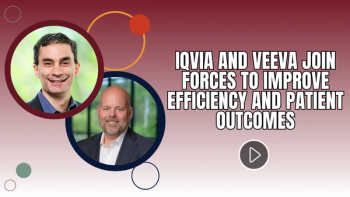
Paul Shawah, EVP, strategy, Veeva Systems and Richard Staub, president, R&D solutions, IQVIA, discuss how their global partnership is streamlining workflows, integrating data and AI, and driving better outcomes for patients.

Paul Shawah, EVP, strategy, Veeva Systems and Richard Staub, president, R&D solutions, IQVIA, discuss how their global partnership is streamlining workflows, integrating data and AI, and driving better outcomes for patients.
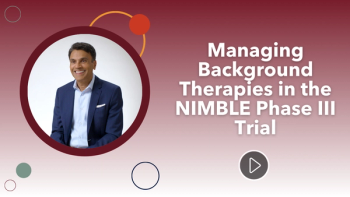
In this video interview, Umesh Chaudhari, executive medical director and global program head of the C5 programs at Regeneron, explains how large sample size and stratification by immunosuppressant use ensured balance and consistent efficacy assessments in the NIMBLE study.

Preliminary Phase IV trial results show that Moderna’s 2025–2026 Spikevax formula boosted neutralizing antibodies more than eight-fold in high-risk adults and older populations against COVID-19.

Maximizing AI’s potential in medical writing and regulatory submissions requires data standardization, objective content practices, and a streamlined document ecosystem that accelerates timelines while ensuring compliance.

Clinical trial enrollment and retention challenges, coupled with limited site resources, highlight the need for stronger site support, collaboration, and patient-centered trial models.

The Phase II trial (NCT07145229) will evaluate the safety, efficacy, and pharmacodynamics of ABP-745 compared with placebo and standard colchicine therapy in over 200 patients with acute gout flares.

In this video interview, Umesh Chaudhari, executive medical director and global program head of the C5 programs at Regeneron, describes how double-blind double-dummy dosing, standardized assessments, and site training ensured protocol adherence and data integrity in the NIMBLE trial.

The IDeate-Lung01 trial showed a 48% confirmed response rate with Merck’s B7-H3 directed antibody-drug conjugate in previously treated extensive-stage small cell lung cancer, with durable benefit observed across second- and later-line patients, including those with brain metastases.
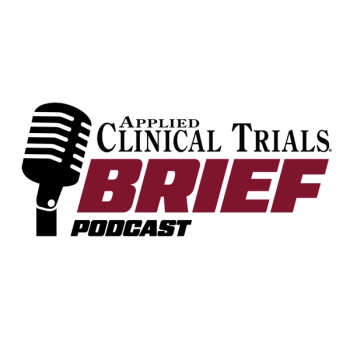
In this week’s Applied Clinical Trials Brief, we recap three top stories: Novo Nordisk’s stepwise approach to AI adoption, new perspectives on eClinical technology as a growth driver, and expert insights on how recent policy changes could impact research funding and future therapies.

Interim results from the ongoing Phase IV LOTUS trial showed that Daybue delivered sustained behavioral improvements and manageable gastrointestinal outcomes in Rett syndrome patients over one year.

Results from the Phase III STRIDE-13 trial (NCT06177912) showed that Merck’s Capvaxive was noninferior to PPSV23 in children and adolescents aged 2 to <18 years who are at increased risk of pneumococcal disease due to chronic medical conditions.
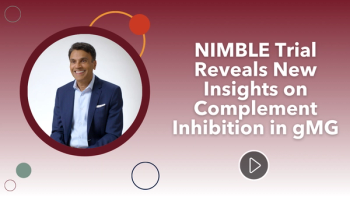
In this video interview, Umesh Chaudhari, executive medical director and global program head of the C5 programs at Regeneron, explains how NIMBLE showed cemdisiran achieved strong efficacy with partial complement inhibition and reduced disease worsening compared to combination therapy.

In this Q&A, Randa Wahid of Indero, and Lyn Mursalo, a freelance clinical research professional, share how sponsors and CROs can build collaborative partnerships, navigate global trial complexities, and apply practical strategies to deliver studies on time and with quality.

The FDA-approved therapy is now included in National Comprehensive Cancer Network clinical guidelines as a treatment option for both pediatric and adult patients with aggressive H3 K27M-mutant diffuse gliomas, offering a new standard of care for recurrent disease.

Results from the two-year AVONELLE-X extension study (NCT04777201) and the Phase IIIb/IV SALWEEN trial showed that Roche’s Vabysmo demonstrated durable vision improvements, extended dosing potential, and reliable safety treating wet age-related macular degeneration and polypoidal choroidal vasculopathy.
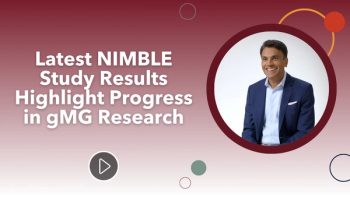
In this video interview, Umesh Chaudhari, executive medical director and global program head of the C5 programs at Regeneron, outlines how the Phase III NIMBLE trial showed cemdisiran improved daily living and clinical assessments in patients with generalized myasthenia gravis.

The designation supports expedited development of SAR402663, Sanofi’s one-time gene therapy designed to reduce treatment burden and slow vision loss in patients with wet age-related macular degeneration.

In this episode of the Applied Clinical Trials Brief, Shipra Patel, global therapeutic area section head for endocrinology and global head of pediatrics at Parexel, shares insights on what makes a standout research partner, how cross-functional teams support GLP-1 studies, the role of real-world evidence, and why patient retention will be critical to shaping the future of obesity drug development.

The pivotal trial showed Eli Lilly’s non-covalent BTK inhibitor pirtobrutinib significantly improved progression-free survival over bendamustine plus rituximab in untreated CLL/SLL patients, with overall survival trending in favor of Jaypirca.
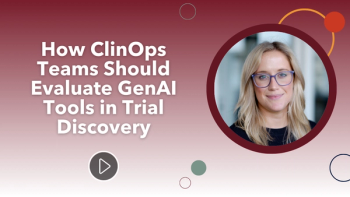
In this video interview, Adrianne Rivard, senior community development manager at myTomorrows, explains why compliance with privacy standards and physician training are critical for safe and effective use of GenAI in clinical trial discovery.

Kate Gallin Heffernan, life sciences attorney at Epstein Becker Green, and Jim Kremidas, executive director, Association for MultiSite Research Corporations (AMRC), discuss how proposed policy changes could limit federal research funding, create uncertainty for clinical trial organizations, and slow the development of future therapies.

Results from a Phase II trial (NCT06449209) showed that BioNTech’s and Bristol Myers Squibb’s pumitamig in combination with standard chemotherapy demonstrated encouraging anti-tumor activity in patients with extensive-stage small cell lung cancer.
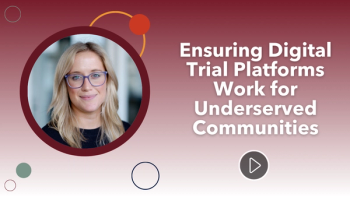
In this video interview, Adrianne Rivard, senior community development manager at myTomorrows, highlights how combining AI platforms with patient navigators can make trial-finding tools more equitable and accessible across diverse healthcare settings.

New guidance and technology advances are reshaping eClinical systems, positioning them as tools to accelerate enrollment, improve data quality, and reduce site and patient burden.

Five-year results from the Phase III EMPOWER-Lung 3 trial show Libtayo combined with chemotherapy achieved a 19.4% overall survival rate versus 8.8% with chemotherapy alone, with notable benefit in squamous NSCLC patients reaching a median overall survival of 22.3 months.

Results from the Phase III ASCEND trial (NCT05882877) showed rocatinlimab maintained long-term efficacy with a favorable safety profile, offering potential for extended dosing intervals in adults with moderate to severe atopic dermatitis.

Results from the Phase III FLAUR2 trial (NCT04035486) showed that Tagrisso combined with pemetrexed and platinum-based chemotherapy achieved a median overall survival of 47.5 months in patients with locally advanced or metastatic EGFR-mutated non-small cell lung cancer.
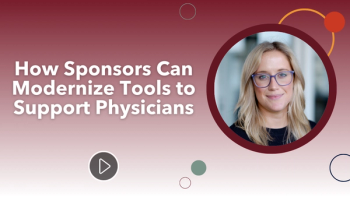
In this video interview, Adrianne Rivard, senior community development manager at myTomorrows, explains why unified, real-time trial platforms are essential for reducing physician burden and improving patient access to studies.

Aligning artificial intelligence with patient needs, trial workflows, and employee experience enables adoption, builds trust, and ensures AI delivers measurable impact across clinical operations.

Results from the Phase III HARMONi trial (NCT06396065) showed that ivonescimab demonstrated a median overall survival rate of 16.8 months in patients with EGFR-mutated, locally advanced or metastatic non-squamous non-small cell lung cancer.